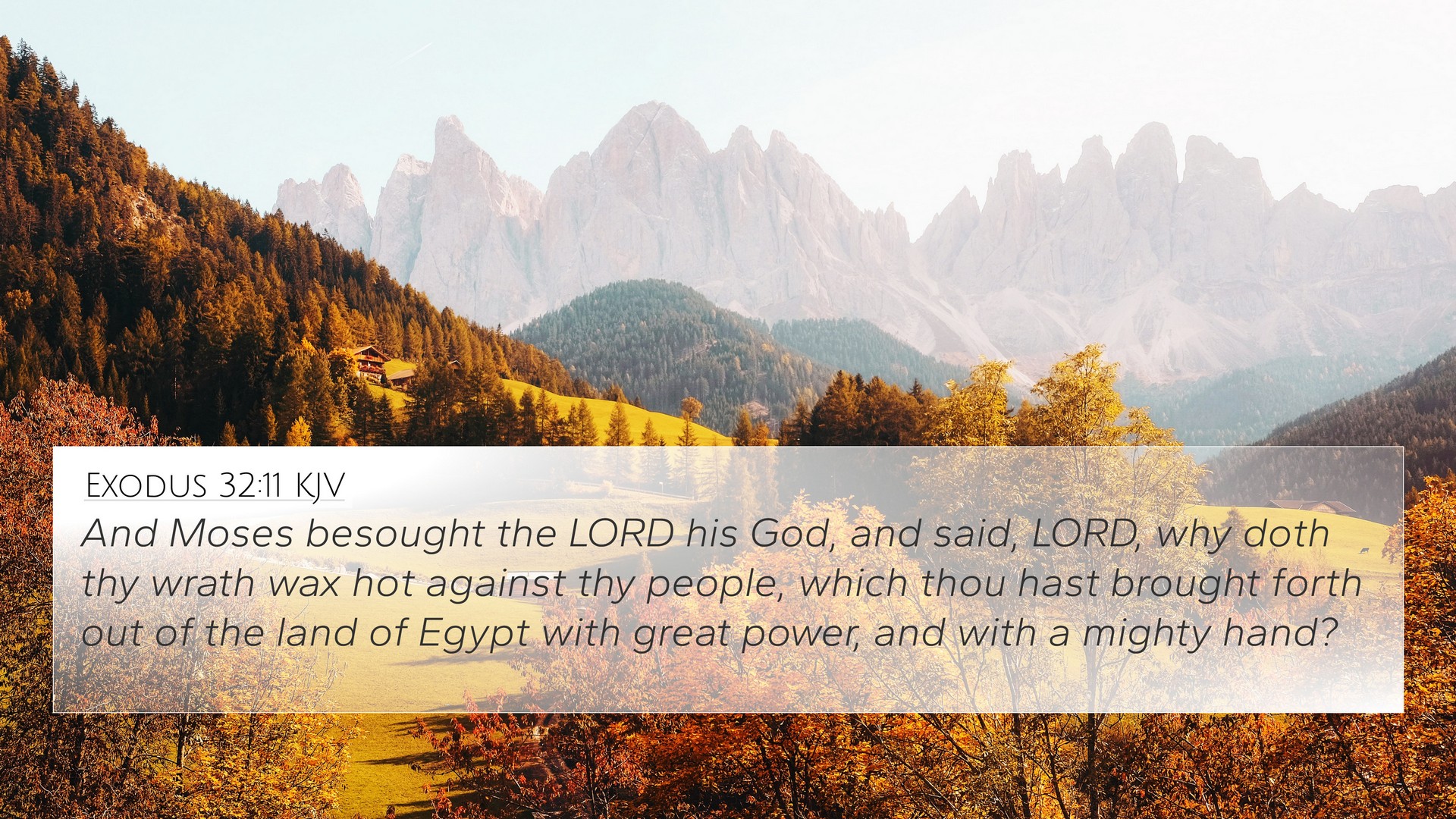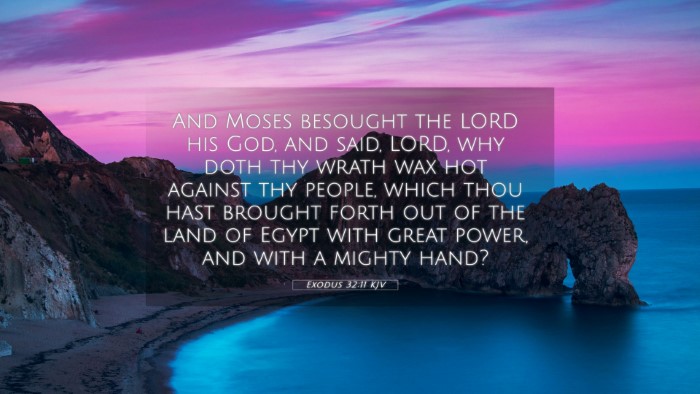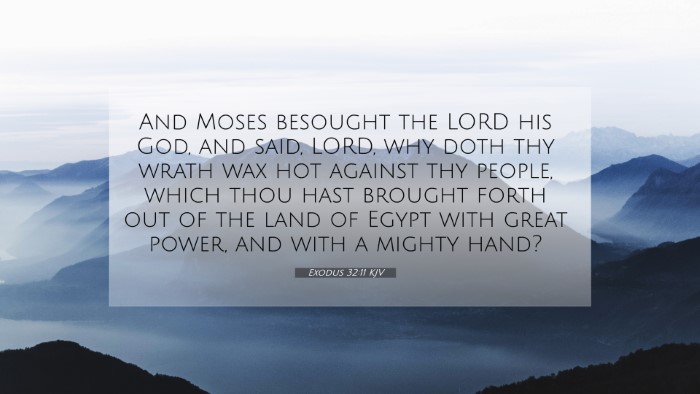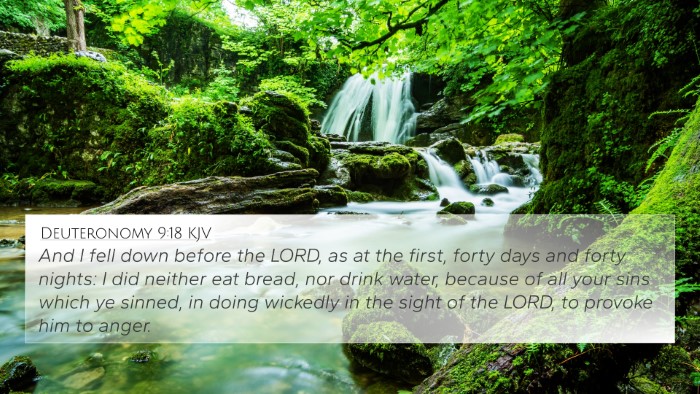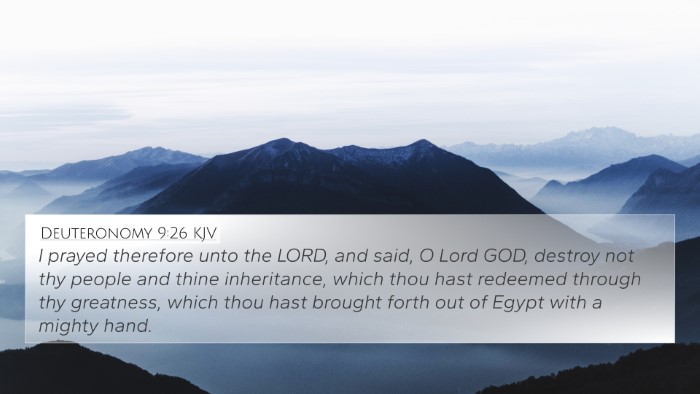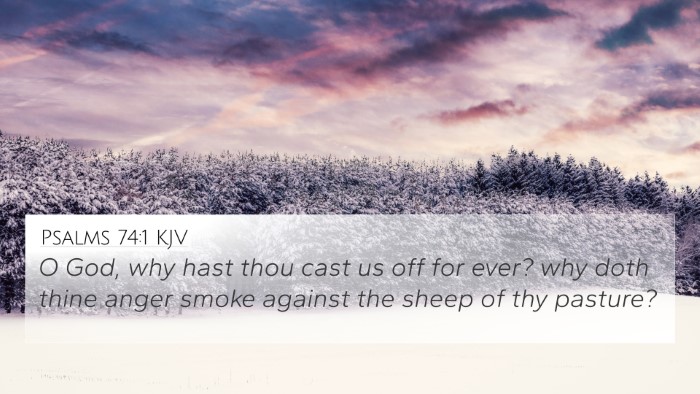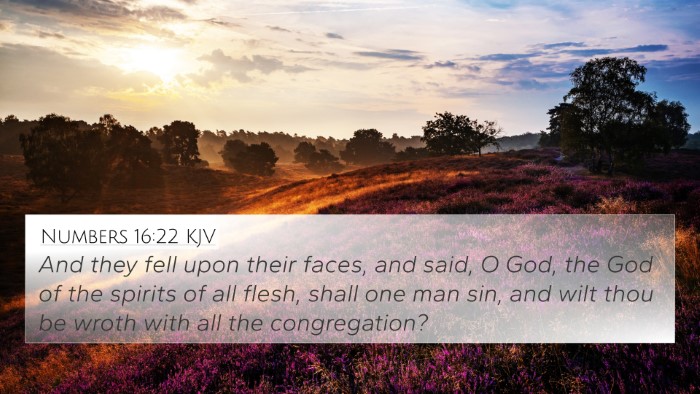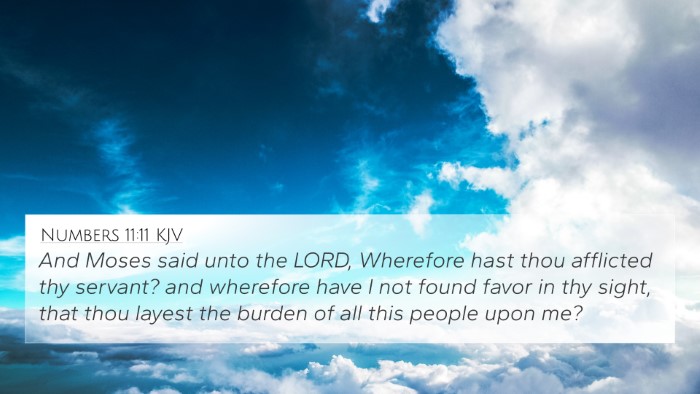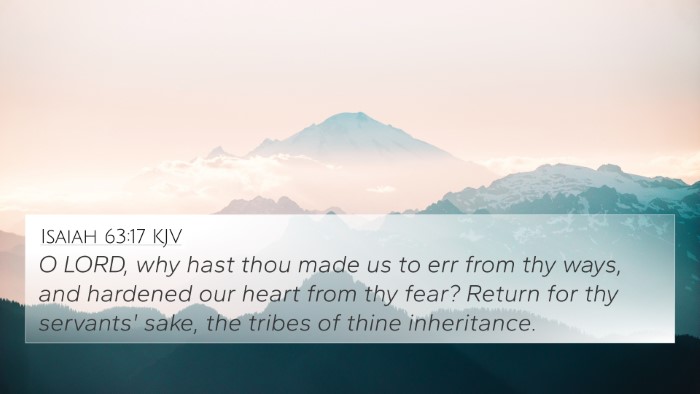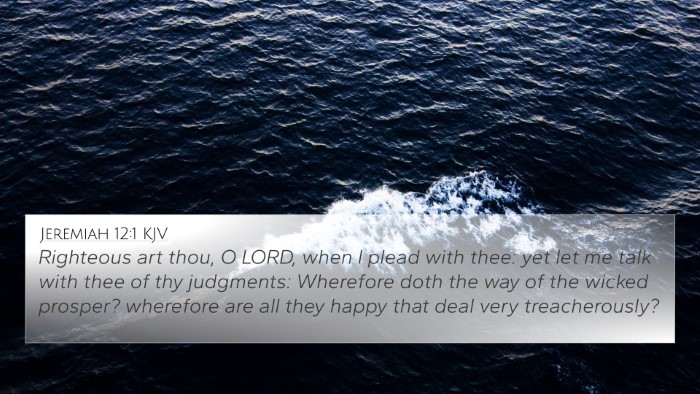Understanding Exodus 32:11
Exodus 32:11 recounts Moses' intercession for the people of Israel after their sin of making a golden calf. This verse holds significant theological weight, illustrating the theme of divine mercy versus human disobedience. It is essential to explore this verse to grasp the biblical narrative surrounding the Sinai covenant and the profound relationship between God and His chosen people.
Verse Context
In the context of Exodus, the Israelites, having just witnessed God's miraculous deliverance from Egypt, quickly turn to idolatry. Moses, who had been on the mountain receiving the Law, is depicted as passionately pleading to God on behalf of the people. This scene highlights God's righteous anger against sin, but also His readiness to forgive those who repent.
Commentary Insights
-
Matthew Henry:
Henry emphasizes Moses’ role as mediator, reflecting the ultimate mediation of Christ. He highlights God's holiness in response to sin but also His enduring love and mercy. This verse illustrates the tension between divine justice and mercy, as Moses appeals to God's reputation among the nations.
-
Albert Barnes:
Barnes points out that Moses’ approach demonstrates humility and earnestness. He stresses the importance of prayer and intercession, portraying Moses as a type of Christ who intercedes for humanity. Barnes also discusses the implications of the promised inheritance and how Moses reminds God of His covenant promises.
-
Adam Clarke:
Clarke offers a detailed analysis of the Hebrew text and contextualizes Moses’ plea. He stresses that Moses understands the seriousness of the Israelites’ sin and seeks to reconcile them with God. This reconciliation is portrayed as vital for Israel's future as a nation chosen by God.
Thematic Connections
This verse invites several thematic considerations and connections between biblical texts. The motif of intercession appears throughout scripture, where figures such as Abraham, Samuel, and ultimately Christ Himself stand in the gap on behalf of the people.
Cross-References
- Exodus 32:12: Moses appeals to God's desires to avoid unjust wrath towards the people.
- Deuteronomy 9:18-20: Moses recalls this moment to show God's mercy and his role in pleading for the Israelites.
- Romans 8:34: This New Testament verse emphasizes Jesus Christ as the one who intercedes for us.
- 1 Timothy 2:5: Echoing the theme of mediation, where Christ serves as a mediator between God and humanity.
- James 5:16: Encourages believers to pray for one another, illustrating the power of intercessory prayer.
- Hebrews 7:25: Affirms that Jesus is able to save completely those who come to God through Him, highlighting His eternal role as intercessor.
- Psalm 106:23: Reflects on similar instances of God's wrath being turned back due to intercession.
Practical Application
Learning from Exodus 32:11 encourages Christians to engage in prayerful intercession. It showcases the importance of approaching God with humility and understanding His characteristics of justice and mercy. Knowing that God listens to the cries of His people inspires believers to pray earnestly for themselves and others.
How to Use Bible Cross-References
Utilizing cross-references, such as those mentioned above, enhances our understanding of scripture. Here are ways to effectively use them:
- Engage in Bible cross-reference study to connect passages that speak to a theme of interest.
- Utilize a Bible concordance to find related verses quickly.
- Implement a Bible cross-reference guide to understand the interrelationships between Old and New Testament texts.
- Look for parallel verses throughout the Bible that provide deeper insights into a specific topic.
Conclusion
Exodus 32:11 is a rich source of understanding the dynamic between human failure and divine grace. By interceding for the people, Moses exemplifies a principle that carries throughout the narrative of the Bible. This verse encapsulates the continual need for mediation in the relationship between God and His followers, culminating in the work of Christ.
Further Studies
As you study Exodus 32, consider how this intercession relates to themes of forgiveness and restoration found throughout Scripture. Engaging in comparative studies of biblical characters who interceded will enrich your understanding and reveal the timelessness of God’s mercy.
